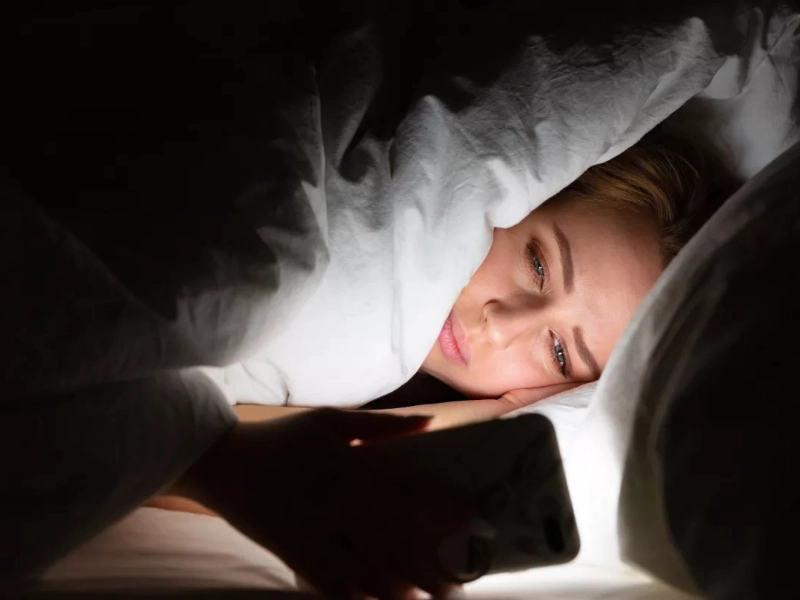Unlock Better Sleep: The Soap Secret Nobody's Talking About
Advertisement
6. Potential Drawbacks and Considerations

Advertisement
Although many people claim great success with the soap sleep trick, it's crucial to weigh any negatives and restrictions of this unusual approach. Like any sleep aid or cure, there are things to consider before including soap into your nightly regimen.
First and most importantly, it's important to understand that the soap trick isn't a clinically validated approach for bettering sleep. The medical profession has not fully assessed its safety and efficacy since there are few extensive investigations. Those who favour evidence-based approaches to health and wellbeing would find great disadvantage in this lack of scientific support.
One such problem is a psychological reliance on the soap trick leading to dependency. You may find it difficult to sleep without soap if you come to link excellent sleep just with its presence in your bed. When travelling or in circumstances whereby the soap trick cannot be used, this could cause anxiety or sleep problems.
For some people, the presence of soap in the bed could really cause disturbance to sleep. An odd object in the sleeping surroundings could generate discomfort or obsession that prevents one from falling asleep. Furthermore, if the soap moves around at night, it might wake you or create physical pain.
Still additional factor is allergic responses or skin sensitivity. Although most people have no problems with soap that isn't directly touching their skin, persons with very sensitive skin or particular soap sensitivities may get irritability or allergic responses. Select a soap free of known allergies or strong ingredients and that is mild.
Although some people would find the soap's aroma nice and maybe helpful, others could find it unpleasant or overbearing. Strong smells could disrupt sleep for people who are sensitive to them or prone to headaches started by particular scents.
Particularly in humid conditions or should the soap get wet, there is also the possibility that it will leave residue on your mattress or linens. This can cause stains or call for more regular cleaning of bedding.
The soap trick could lead to arguments or discomfort for couples who share a bed if one partner is excited about the approach while the other is dubious or disturbed by it. This could cause concessions in sleeping quarters that might not be perfect for either person.
One other disadvantage to take into account is the possibility of a declining placebo effect across time. Should the placebo effect be the main source of the soap trick's benefits, they may disappear with practice's novelty diminishes. This could cause disillusionment or drive one to always be looking for fresh ideas for sleeping.
Dependency on the soap method also runs the danger of postponing expert advice for underlying medical conditions or sleep problems. See a doctor if you have persistent sleep issues instead of depending just on unusual treatments.
The soap trick could interact with or offset other sleep drugs or aids. Although direct connections are not known, the psychological impact of utilising the soap trick could affect the apparent efficacy of other treatments.
Some detractors contend that emphasising unusual techniques like the soap trick veers from accepted, evidence-based strategies for enhancing sleep hygiene. They argue that time and effort would be better used on tried-and-true techniques such keeping a regular sleep schedule, developing a calming evening ritual, and maximising the sleeping surroundings.
Furthermore taken into account is the environmental impact of routinely replacing soap bars provided customers follow advise to do so. This could result in needless waste, particularly in cases when the soap is not being utilised primarily for cleaning.
Although usually inexpensive, the expense could mount up over time if you are regularly changing or buying specific soaps. For people on a restricted budget, this could be taken into account particularly if the advantages are not very great.
Finally, there's the possibility of social shame or embarrassment connected with utilising an unusual sleeping aid. Explaining the habit to visitors or new partners could make some people uneasy and cause social awkwardness or the need to keep their sleeping schedule secret.
When deciding whether to use the soap sleep method, one should compare these possible negatives with the claimed advantages. Like any health-related decision, it's recommended to approach the approach with a balanced view, reasonable expectations, and a willingness to stopping the practice should it show to be ineffective or troublesome.
Recall that effective sleep hygiene calls for a mix of behaviours; so, no one approach is probably going to be a magic bullet for sleep problems. See a healthcare expert if you have ongoing sleep issues; they can offer tailored advise and treatment choices depending on your particular requirements and situation.
Advertisement
You May Like

